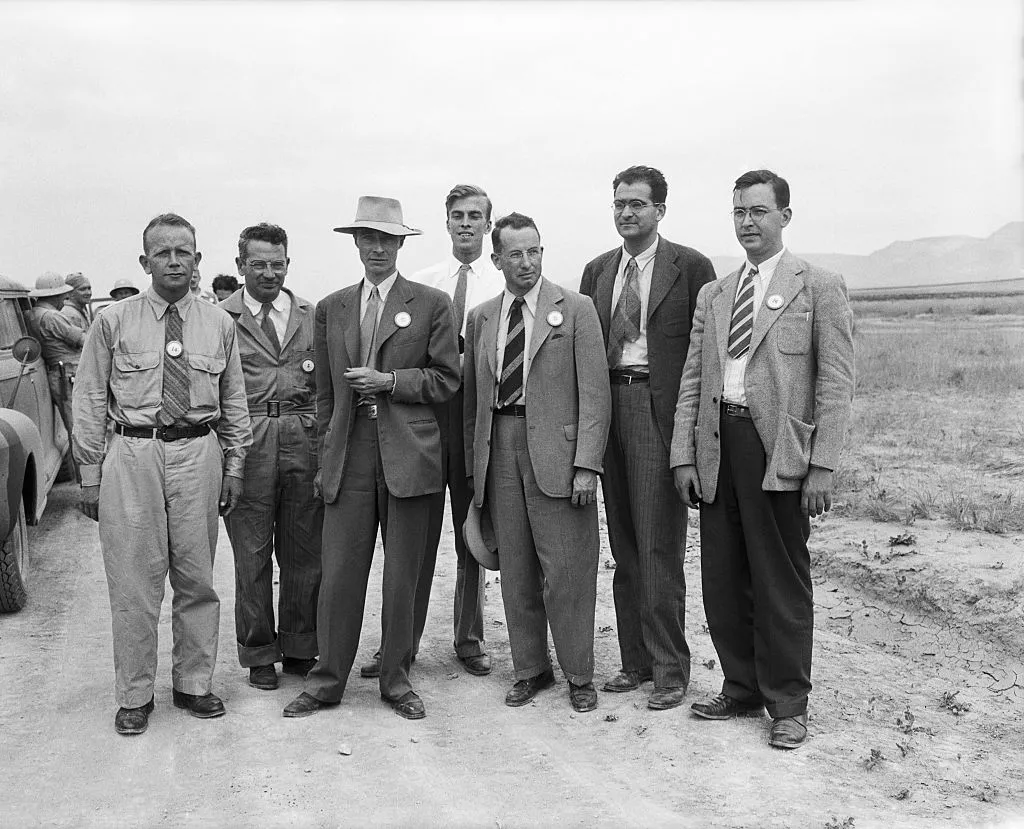J. Robert Oppenheimer’s death 22 years after the first successful nuclear test on July 16, 1995, cut short his life as a pioneering scientist.
Oppenheimer was born in New York City on April 22, 1904. His journey began as a result of his insatiable curiosity. He was a child prodigy who showed a deep intellect and was fascinated by the wonders of mathematics and physics. His brilliance was most evident during World War II when he led the top-secret Manhattan Project. The project was designed to develop the first atomic weapon that would, if it were successful, change the course the war.
Related Articles
Cillian Murphy
Inside Their Private Life: Cillian Murphy’s Kids Are ‘Underwhelmed’ by His Movies
Margot Robbie and Cillian Murphy star in Barbie and Oppenheimer, respectively.
Does Barbie have an end-credits scene? When Can You Leave Oppenheimer?
Christopher Nolan’s epic movie Oppenheimer is based on American Prometheus, the 2008 biography. Cillian Murphy, an Irish actor, played the innovative genius in this film. It was released on 21 July 2023. “He was dancing morally between raindrops. Murphy described his character as complex, contradictory and polymathic. He was charismatic and intellectually attractive, but ultimately unknown. There were incidents in his young life that were very worrying, erratic. He was diagnosed with dementia praecox, a term used to describe symptoms of schizophrenia. He would eventually die at the age 62. Here is how Robert Oppenheimer passed away and what his legacy was in the modern age.
How did Robert Oppenheimer die?
Robert Oppenheimer passed away in 1967, just two years after he was diagnosed with throat carcinoma. Oppenheimer, a chain-smoker, underwent chemotherapy and radiation treatments in late 1966. Both failed. He went into a coma in February 1967 and died on February 18 at his home, Princeton, New Jersey.
ATOMIC BOMB SCIENTISTS MEASURE RADIOACTIVITY OF SEARED SAND PARTICLES AT A NUCLEAR TESTING SITE NEAR ALAMOGORDO NEW MEXICO. PHOTO: GETTY IMAGES ARCHIVES
Since 1939, the Nazi invasion of Germany and its neighbors was causing war in Europe. In 1940, Japan, the dominant power in the Pacific, joined Germany and Italy to sign the Tripartite Pact. The pact formalized an alliance between Germany, Italy and Japan. These three countries were later referred to collectively as the Axis Powers. The Pact recognized that Japan was “leading Germany and Italy” in the establishment of the new order in Europe. In 1941, Japan attacked British territories and US territory, including a fleet of ships at Pearl Harbor. This brought the United States into the war.
Oppenheimer was the leader of the Manhattan Project. Two months before the Pearl Harbor attack, Roosevelt approved a project to develop an atomic bomb. In July 1945, the first successful test was carried out in New Mexico’s desert. Alan Carr, historian at Los Alamos, told CBS that Oppenheimer had allegedly said “Lord these matters are difficult on the hearts” before the final atomic test. Oppenheimer remembered the moment many years later and said it reminded him of a Hindu scripture. In a 1965 NBC Interview, he stated: “Now I have become Death, the destroyer worlds.”
Germany suffered devastating losses before finally surrendering to the Allies – Great Britain, the United States and the Soviet Union – on May 7, 1945. At this point, it is estimated that 15 to 20 millions people have died. The Pacific War continued, so the decision was taken to drop two nuclear bombs. One on Hiroshima, on August 6, and the other on Nagasaki, on August 9. They were named Little Boy, and Fat Man. Bombings ended war, but at a high price: 129,000 and 226,000 civilians died. Japan surrendered one week later.
From left: Cillian MURPHY as J. Robert Oppenheimer, OLLI HAASKIVI as EDWARD Condon, Matt DAMON as LESlie Groves, DANE DEHAAN is KENNETH Nicholas. Photo by Melinda Sue GORDON / Courtesy of the Everett Collection
Oppenheimer’s moral dilemma over dropping such a destructive weapon for the sake of ending the war haunted him for many decades. He admitted that it was done “in good conscience, with regret and based on the best information they had at the time” Oppenheimer told CBS in 1965 that the decision to end the war in this way, which was cruel, had not been taken lightly. “But, I’m not confident today that there was a better option then,” he added. “I think we had a good reason to do this. But I don’t think our consciences will be easy to step out of the role of learning about nature and changing the course of history.”
Oppenheimer is said to have suffered from a severe depression following the war. In the CBS News interview of 1965, Oppenheimer said that he always tried to be positive. He said, “There are hundred reasons to see no hope at any time. I assume that everyone can think of these without being reminded.” It’s hard to imagine the other side. I have tried saying that they exist, and although they are tentative, limited and frail, they still look to me as a bridgehead towards a livable tomorrow, but with work.
American Prometheus – The Triumph and Tragic Story of J. Robert Oppenheimer
This is the definitive biography of J. Robert Oppenheimer. He was a brilliant physicist, who helped build the atomic weapon for his country during a war and later faced the moral implications of scientific progress. Kai Bird and Martin Sherwin have spent 25 years writing this acclaimed, magisterial biography about Oppenheimer, from his early days to his pivotal role during the Cold War. This is history and biography at its best, fascinating and informative. The New York Times calls it “a work of voluminous research and lucid insights, unifying its multiple portraits with a keen understanding of Oppenheimer’s essential nature,… It succeeds to deeply fathom his most damaging, contradictory behavior.”

